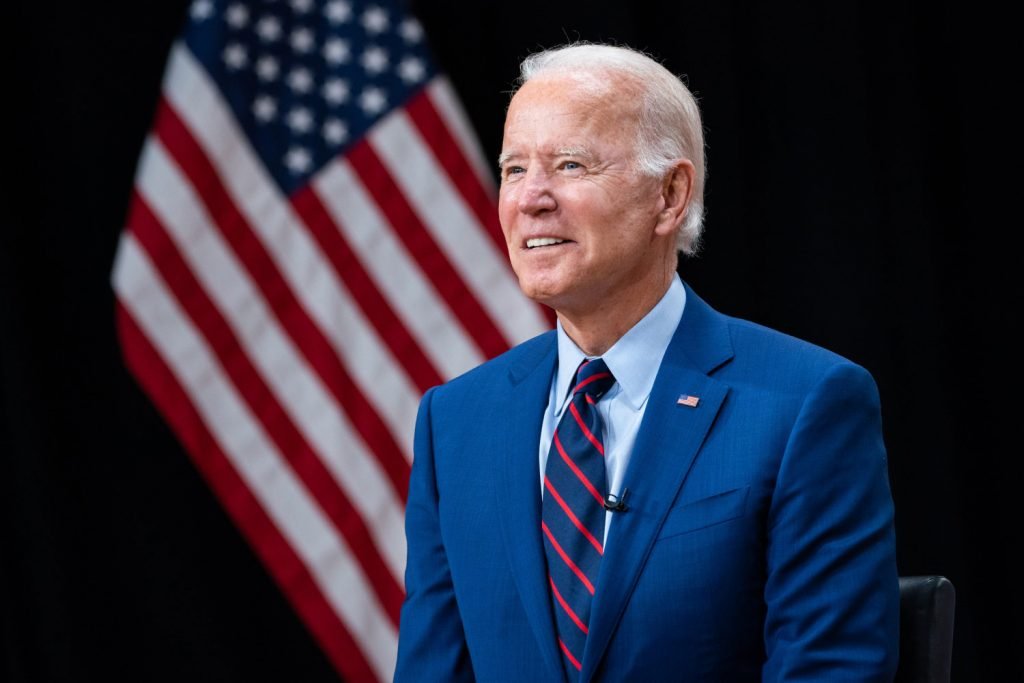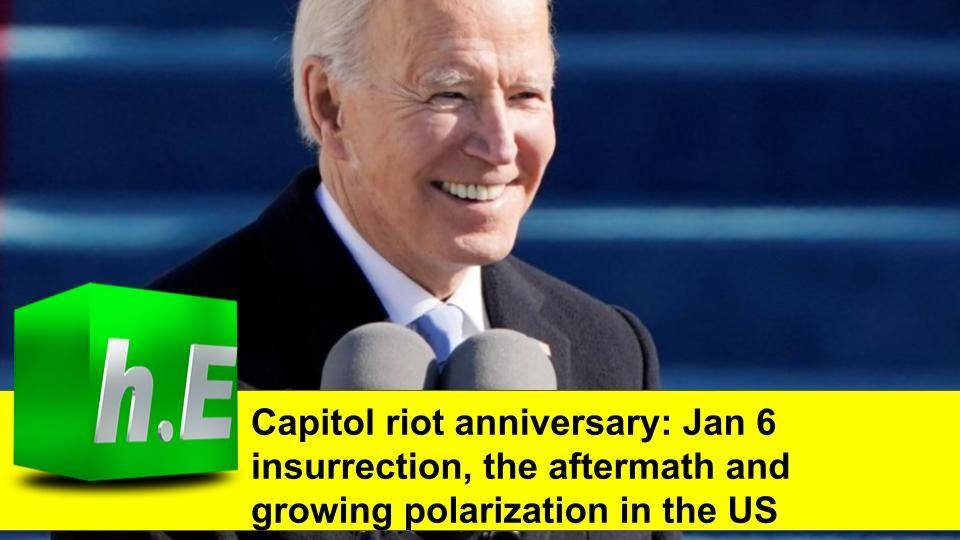US President Joe Biden is preparing to mark the first anniversary of the US Capitol insurrection, gathering with lawmakers to remember the violent attack that has fundamentally changed Congress and raised global concerns about the future of American democracy.
In a speech to be delivered at the Capitol marking the anniversary of the attack, Mr. Biden will offer a striking portrait of the fragility of the two-century-old American system, according to advance excerpts released by the White House. Rather than reaffirm the durability of the union, as presidents typically do, he will emphasize the dangers of its collapse.
“At this moment we must decide what kind of nation we are going to be,” Mr. Biden plans to say, according to the excerpts. “Are we going to be a nation that accepts political violence as a norm? Are we going to be a nation where we allow partisan election officials to overturn the legally expressed will of the people? Are we going to be a nation that lives not by the light of the truth but in the shadow of lies? We cannot allow ourselves to be that kind of nation.”
Democratic lawmakers have planned a day-long series of events at the Capitol to mark the anniversary, ranging from a moment of silence on the House floor at 12 p.m. ET, to a conversation with historians Doris Kearns Goodwin and Jon Meacham, moderated by Librarian of Congress Carla Hayden at 1 p.m. ET. The purpose is “to establish and preserve the narrative” of Jan. 6, according to a statement by House Speaker Nancy Pelosi.

There will also be a prayer vigil on the Capitol steps led by Pelosi and Senate Majority Leader Chuck Schumer at 5:30 p.m. ET. Lawmakers will also have the opportunity to share their reflections of the day.
The day’s events, Pelosi said, “are intended as an observance of reflection, remembrance, and recommitment, in a spirit of unity, patriotism, and prayerfulness.”
The former president had planned to mark the anniversary with a press conference at Mar-a-Lago, where he was expected to assail the bipartisan select committee that Pelosi formed to investigate the siege. But Trump canceled the event, saying he would discuss topics related to the probe at a rally in Arizona later this month.
Five people died in connection with the Jan. 6 attack, including Trump supporter Ashli Babbitt, who was shot and killed by police as she tried to break into the House chamber, and a Capitol Police officer who died from a stroke one day after being pepper-sprayed during the riot. More than 140 other police officers were injured defending the Capitol; four have since taken their own lives.
According to the FBI, more than 725 people have been criminally charged in connection with the riot, which occurred after a rally during which Trump repeated false election fraud claims and told supporters they needed to “fight like hell.”
In recent interviews, Trump has taken his Sharpie to that reality, calling his rally speech “calming,” the attack on the Capitol a “protest” and Biden’s election as the real “insurrection.”

“It was a protest,” Trump told Fox News host Laura Ingraham last month. “The insurrection took place on Nov. 3, which was Election Day. This was a protest, and a lot of innocent people are being hurt. A lot of innocent people are being injured.”
The former president’s repeated attempts to whitewash one of the darkest days in American history appear to be working, at least among his faithful. According to the Yahoo News/YouGov poll, more than twice as many Trump voters now say the events of Jan. 6 were justified (23 percent) as said the same immediately after the siege itself (11 percent).

